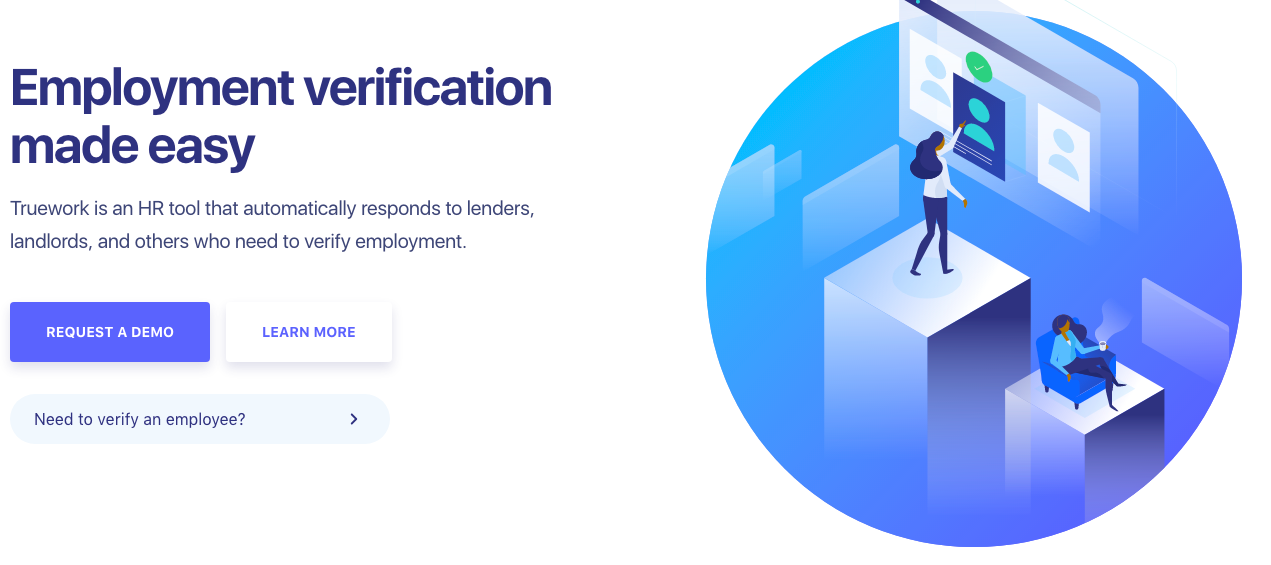
I stayed roughly nine months at my first job at JP Morgan, and then a year at my next job, before going to graduate school. Then I had five jobs at the same time. I was either a hustler or a millennial born years before my generation.
These days, it’s commonplace to view millennials as job hoppers. I know a few, and yes they are. In the last two decades, the number of companies worked for in five years after graduation has nearly doubled, according to LinkedIn. This means, of course, a lot more employers either seeking or sharing employment verifications.
This should be great news for the giant of this space – 100-year-old Equifax, which has 75 percent of Fortune 500 companies as clients of their The Work Number subsidiary. Unfortunately, Equifax is trying to build trust after a massive data breach that exposed personal information on 150 million Americans.
The demand for more employee verifications and increased data security, plus increased regulations (mortgage lenders are required to get formal verifications of salaries and employment), there clearly is an opening for a new employment verification player.
This is all great timing for Truework – which just launched out of stealth mode, and has already received $2.9 million in seed financing from Khosla Ventures, led by Keith Rabois, and Menlo Ventures and Founder Collective, to name a few.
For Ryan Sandler, co-founder and CEO, Truework was his solution to what he considers a transparency problem.
“What inspired us to start this company is how little transparency there is today in how personal and sensitive data exchanges hands across the web. We want to help people get back control of their own data, starting with important professional and financial information,” Ryan said to me. “What Truework comes down to is consent and transparency. With existing vendors, employers and employees are often not aware of how their data is being used and shared with other parties behind the scenes. With Truework, employees must give explicit sign off before data is released, and have full transparency into who is requesting information and why.”
For instance, if an HR department receives an employment verification request for an employee, they send that request to Truework, which would be connected to the HR’s software platform. Truework then gets the information and sends to the employee to verify and approve. Once the employee knows what’s being sent, Truework sends that information the third-party requesting it. Today, Truework has several employer clients, including Trunk Club, Crowdflower and The Motley Fool.
Sounds good, but this isn’t exactly a revenue-driving solution for employers, so how much are they willing to pay for an employee benefit such as this?
Ryan believes it’s around $3 per employee per year.
“A lot of these HR services, say the core HR system provided by companies like Workday or Zenefits, may be $10 a month minimum, per employee compared to our 25 cents a month,” said Ryan, suggesting, it’s a pretty low economic bar.
“It comes down to time saving and a more secure way to share data that can help employees feel comfortable,” he added. “But the most immediate value is that this saves time.”
In time, Truework hopes to be integrated with lending institutions that are processing loans, say for mortgages. You can imagine if Truework has a number of employers signed up on their system and lenders on their system, Truework can automatically meet those requests without either the lender or employer really having to deal with that hassle. At that point, Truework can take fees from both sides.
Truework estimates that in America, over 100 million transactions, such as loans or job applications, require verification of employment or income.
















